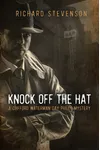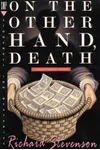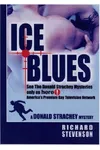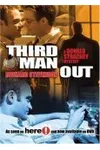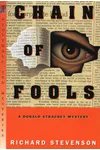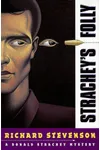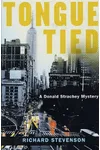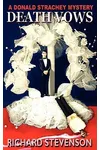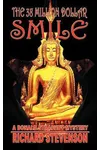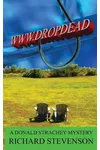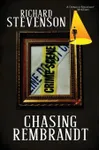Picture an American storyteller who turned the mystery genre on its head with a sharp-witted, openly gay detective—meet Richard Stevenson! Known for his groundbreaking Donald Strachey series, Stevenson, the pen name of Richard Lipez, brought humor, heart, and social commentary to crime fiction. His stories didn’t just solve mysteries; they challenged stereotypes and gave voice to the LGBTQ+ community in a way that was revolutionary for its time.
Born in 1938 in Lock Haven, Pennsylvania, Stevenson’s journey from journalist to Lambda Literary Award-winning author is as captivating as his novels. With a knack for witty prose and intricate plots, he crafted tales that resonate with readers across the globe, proving that mysteries can be both thrilling and deeply human.
The Making of Richard Stevenson
Richard Lipez, the man behind the Stevenson pseudonym, grew up in a small Pennsylvania town, where his father ran a local radio station. A jazz enthusiast, young Lipez hosted a weekly show, hinting at his creative spark. After earning a degree from Pennsylvania State University, he served in the Peace Corps in Ethiopia, an experience that broadened his worldview. His journalism career, including stints at The Berkshire Eagle and The Washington Post, honed his keen eye for detail, which later defined his fiction. In the late 1970s, Lipez began exploring his identity as a gay man, a personal awakening that fueled his desire to write authentic, stereotype-defying characters.
Richard Stevenson’s Unforgettable Stories
Stevenson’s Donald Strachey mysteries, starting with Death Trick in 1981, introduced Albany’s only gay private investigator, a character inspired by Lytton Strachey’s intellectual wit but grounded in hard-boiled grit. The series, spanning 17 novels, follows Strachey as he tackles cases involving murder, corruption, and gay-bashing, all while navigating his relationship with partner Timmy Callahan. On the Other Hand, Death (1984) sees Strachey protect an elderly lesbian couple from corporate greed, blending social justice with suspense. Ice Blues (1986) ups the stakes with a frozen corpse and millions in cash, showcasing Stevenson’s knack for twisty plots. His final work, Knock Off the Hat (2022), launched a new series set in 1940s Philadelphia, diving into post-war gay-bashing with noirish flair.
Stevenson’s style is a masterclass in balance: sharp dialogue, vivid settings, and humor that cuts through tension. His Albany backdrop feels alive, steeped in political intrigue and vibrant gay culture. By centering openly gay characters, he defied the genre’s norms, offering nuanced portrayals that resonated with LGBTQ+ readers and beyond. Four Strachey novels were adapted for TV, cementing his influence.
Why Richard Stevenson Matters
Stevenson’s impact on the mystery genre is profound. Before his work, gay characters in crime fiction were often caricatures—villains or victims. Strachey, by contrast, was relatable, confident, and unapologetically queer, paving the way for inclusive storytelling. His Lambda Literary Award for Red White Black and Blue (2011) underscores his role in elevating LGBTQ+ voices. Stevenson’s novels also captured the pulse of gay life, from pre-AIDS activism to modern politics, making them time capsules of resilience and change. His passing in 2022 left a void, but his stories continue to inspire, proving that good mysteries can change hearts and minds.
- Born: November 30, 1938, Lock Haven, Pennsylvania
- Key Works: Death Trick, On the Other Hand, Death, Ice Blues, Knock Off the Hat
- Awards: Lambda Literary Award for Best Gay Mystery (2011)
- Notable: Four Strachey novels adapted for TV by HereTV
Snag Death Trick and dive into Richard Stevenson’s witty, trailblazing mysteries—you’ll be hooked by the first clue!
